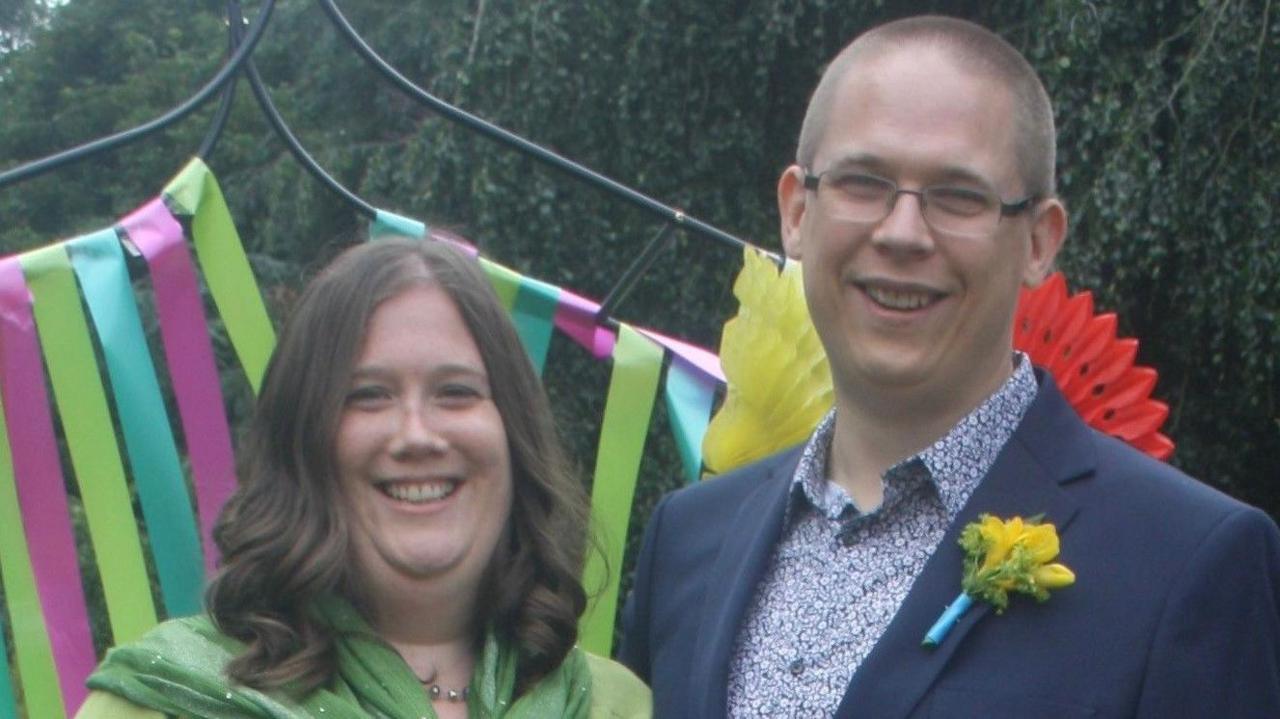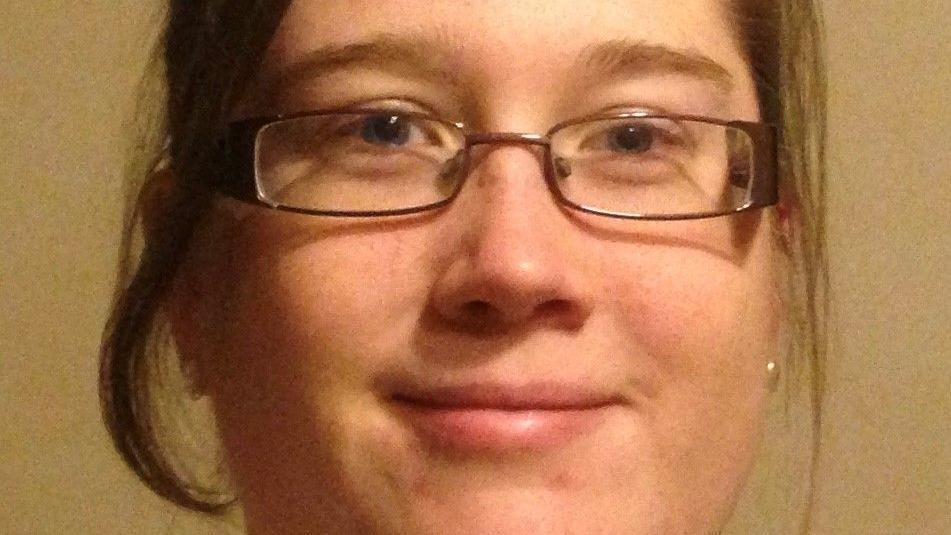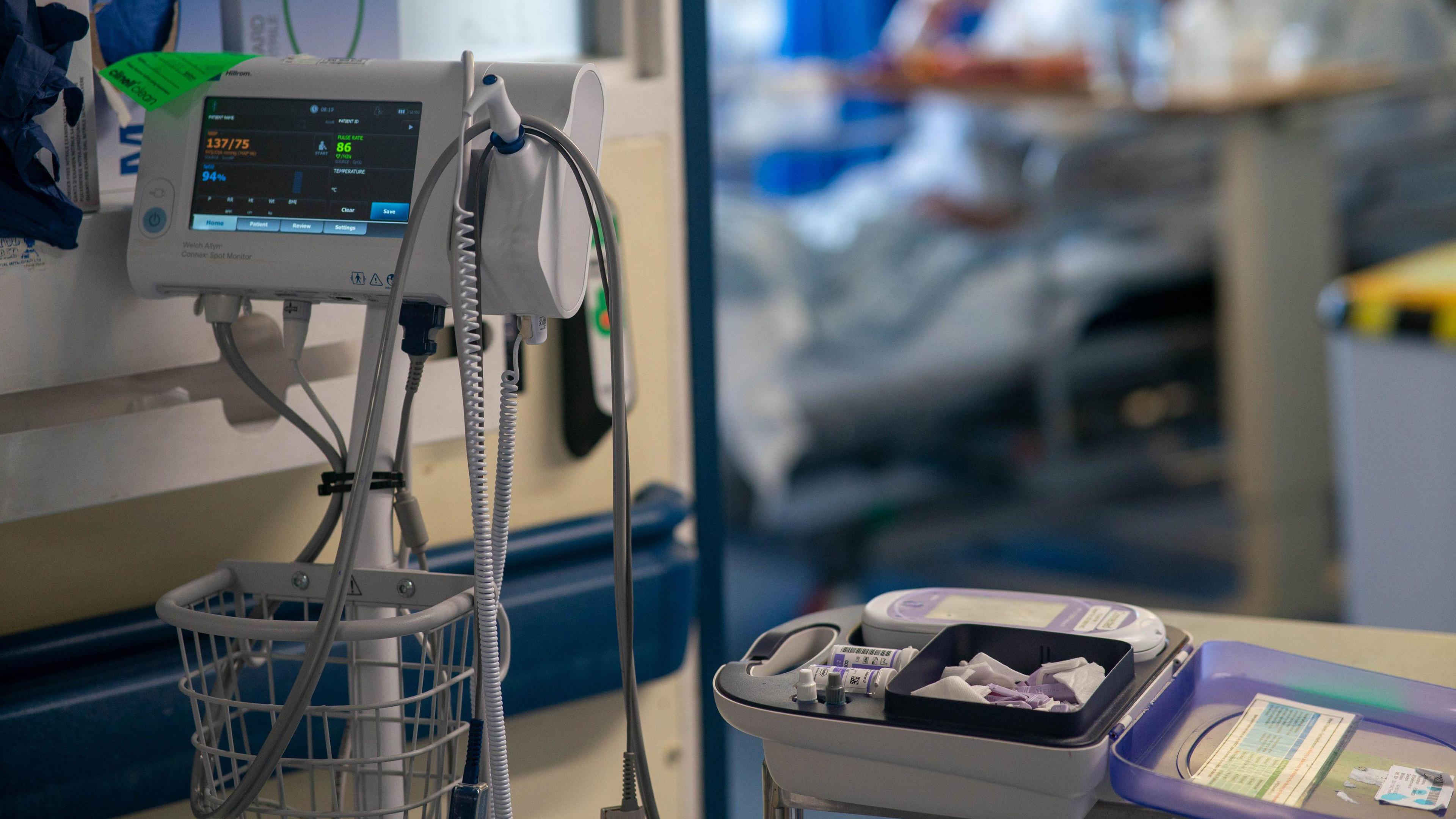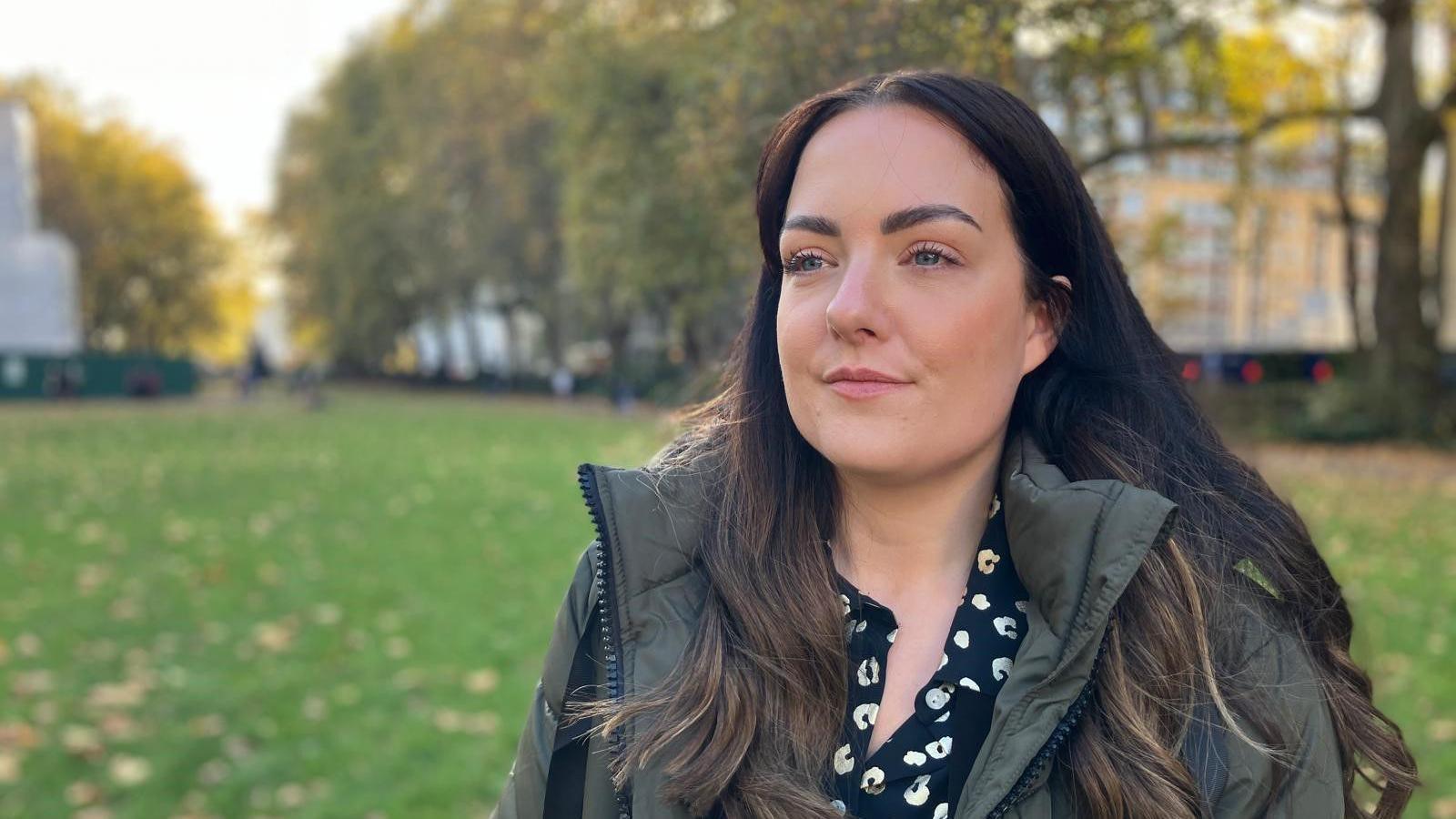Waiting for endometriosis diagnosis 'soul-destroying'

Vicky (pictured with her husband) says endometriosis has had a "huge impact" on her life
- Published
"It's like someone is taking a machete to the front of your pelvis, and a baseball bat to your lower back."
Vicky Tutty is describing her endometriosis symptoms.
It took 15 years for the 42-year-old from Hartley Wintney, Hampshire, to finally get a diagnosis, by which time her condition "was so bad and so complicated that the consultant couldn’t actually do anything".
As Vicky waits for an operation, experts warn there is a gynaecology care crisis in the UK, with waiting lists for appointments having more than doubled since February 2020.

Vicky Tutty has waited years for an operation after being diagnosed with endometriosis
Endometriosis is a condition where tissue similar to the lining of the womb grows outside it. It can result in severe period pain, pain in the pelvic area and extreme tiredness.
For Vicky, who is originally from Reading, it has a "huge impact", affecting her mobility and leaving her with little energy to do anything else at home after a day's work.
"It’s just constant," she explains. "I wake up every morning [thinking] ‘what kind of a day is it going to be today?’, and sometimes I can’t get out of bed."
Vicky is married and has two children, a son aged 17 and a daughter aged 13. When asked how she is coping by concerned family members, she even has a code or "in-joke".
"When I say ‘I’m fine’, I’m in pain," she says. "And when I say ‘I’m in pain’, I’m really in a lot of pain."
She continues: "There were lots of visits to the GP. I went to the consultant with my dad because he was so tired of seeing me in pain… so clearly I needed some support in advocating for myself."
Vicky was diagnosed in January 2022. Four months later, the specialist said she would go on the waiting list for a hysterectomy.
She says: "I asked 'How long do I have to wait? I appreciate that’s like asking how long is a piece of string'.
"He said: 'It’s a very long piece of string.'"
Vicky got the call two years later and having just started a new job, it had to be pushed back to November. Her Body Mass Index (BMI) was then deemed too high, so it has now been rescheduled for January.
"It’s been a very long wait to get this operation," she says. "It’s a bit soul-destroying. It feels like women’s health is just ignored."

In England the target is for 92% of patients to have a referral-to-treatment time of fewer than 18 weeks
Dr Shilpa McQuillan, founder and clinical lead of the Berkshire Menopause Clinic and newly appointed clinical lead of Gynaecology Berkshire West, says stories like Vicky's are "extremely common".
"I imagine there are millions that actually relate to this," she says.
"Every week or month you’re waiting, that condition can get more complex, so by the time you reach the hospital, you’re not only needing a gynaecologist to see you, you are needing really complex help."
She says healthcare professionals "are really feeling out of control and unable to help women", with a general consensus that there is not enough resources or funding.
In England, the NHS target is for 92% of patients to have a referral-to-treatment time of fewer than 18 weeks.
A Department of Health and Social Care spokesperson said: "Too many women are facing unacceptable waits for gynaecology treatment."
They said the new government was "overhauling" women's healthcare "backed by a £22.6bn increase in day-to-day health spending" which would "bring down waits in gynaecology so get women the support they need when they need it".
Get in touch
Do you have a story BBC Berkshire should cover?
You can follow BBC Berkshire on Facebook, external, X (Twitter), external, or Instagram, external.
Related topics
- Published18 November 2024
